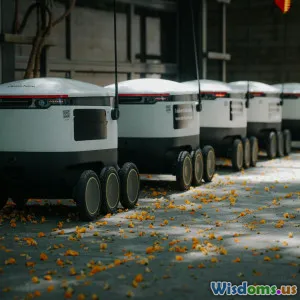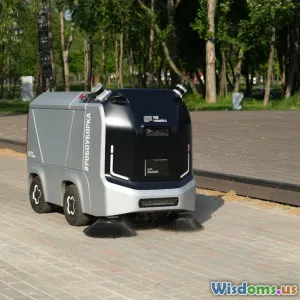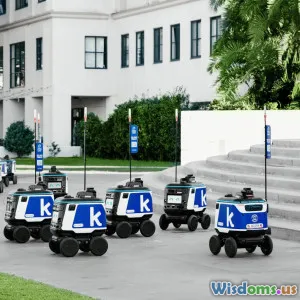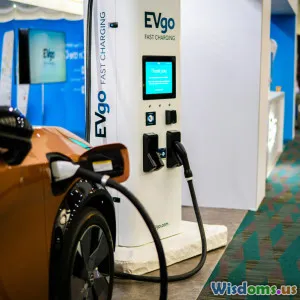
Impact of AI on Car Manufacturing
6 min read Explore how AI is transforming car manufacturing, enhancing efficiency, innovation, and sustainability in the automotive industry. (0 Reviews)
Impact of AI on Car Manufacturing
The automotive industry is undergoing a significant transformation, driven by advancements in technology. Among these advancements, artificial intelligence (AI) stands out as a game changer. In this article, we'll explore how AI is impacting car manufacturing, enhancing production efficiency, fostering innovation, and promoting sustainability.
Revolutionizing Production Efficiency
One of the most immediate effects of AI in car manufacturing is the enhancement of production efficiency. Traditional manufacturing processes often suffer from inefficiencies due to human error, machine breakdowns, and logistical challenges. AI technologies, such as machine learning and predictive analytics, can help mitigate these issues.
For example, AI algorithms can analyze data from machinery to predict when a machine is likely to fail. This predictive maintenance allows manufacturers to address issues before they cause disruptions in production. Companies like Ford and BMW are already implementing AI-driven systems to monitor equipment health, leading to reduced downtime and increased productivity.
Moreover, AI can optimize supply chain management by predicting demand for specific car models, thus refining inventory levels. This optimization not only reduces costs but also minimizes waste, contributing to a more sustainable manufacturing process.
Enhancing Design and Development
AI is also changing the way cars are designed and developed. Traditionally, the design process involved extensive human input and numerous iterations. With AI, designers can leverage generative design tools that use algorithms to create thousands of design alternatives based on specified parameters.
For instance, General Motors has utilized AI for generative design, resulting in lighter and more efficient car components. This not only speeds up the design process but also leads to innovative solutions that might not have been considered by human designers alone.
Furthermore, AI can analyze customer preferences and market trends to inform design decisions. By processing vast amounts of data from social media, reviews, and sales data, car manufacturers can create vehicles that better align with consumer desires.
Implementing Autonomous Technologies
AI is at the core of the development of autonomous vehicles. Self-driving technology relies on vast amounts of data processing and real-time decision-making, capabilities that AI excels in. Through the use of AI algorithms, vehicles can interpret data from sensors, cameras, and radar systems to navigate safely through various environments.
Companies like Tesla and Waymo are leading the charge in integrating AI into their autonomous driving systems. By continuously learning from real-world driving conditions, AI systems improve over time, making autonomous vehicles safer and more reliable.
Fostering Sustainability in Manufacturing
As environmental concerns become more pressing, AI is playing a crucial role in promoting sustainability within car manufacturing. AI systems can analyze production processes to identify areas where energy consumption can be reduced, leading to more eco-friendly manufacturing practices.
For example, AI can optimize energy usage in production facilities by adjusting power consumption based on real-time needs. Additionally, AI can assist in recycling and waste management processes, ensuring that materials are reused efficiently, thus reducing the carbon footprint of manufacturing.
Challenges and Considerations
While the integration of AI in car manufacturing offers numerous benefits, it is not without its challenges. The initial investment required for AI technologies can be significant, and companies must also navigate the complexities of data privacy and cybersecurity. Moreover, the shift towards AI-driven processes may lead to workforce changes, necessitating retraining and upskilling of employees.
Conclusion
The impact of AI on car manufacturing is profound and multifaceted. From enhancing production efficiency and design innovation to fostering sustainability and driving the development of autonomous vehicles, AI is reshaping the automotive landscape. As the industry continues to evolve, embracing these technologies will be crucial for manufacturers looking to stay competitive in a rapidly changing market. The future of car manufacturing is not just about building vehicles; it’s about leveraging AI to create smarter, safer, and more sustainable transportation solutions.
Rate the Post
User Reviews
Popular Posts





















